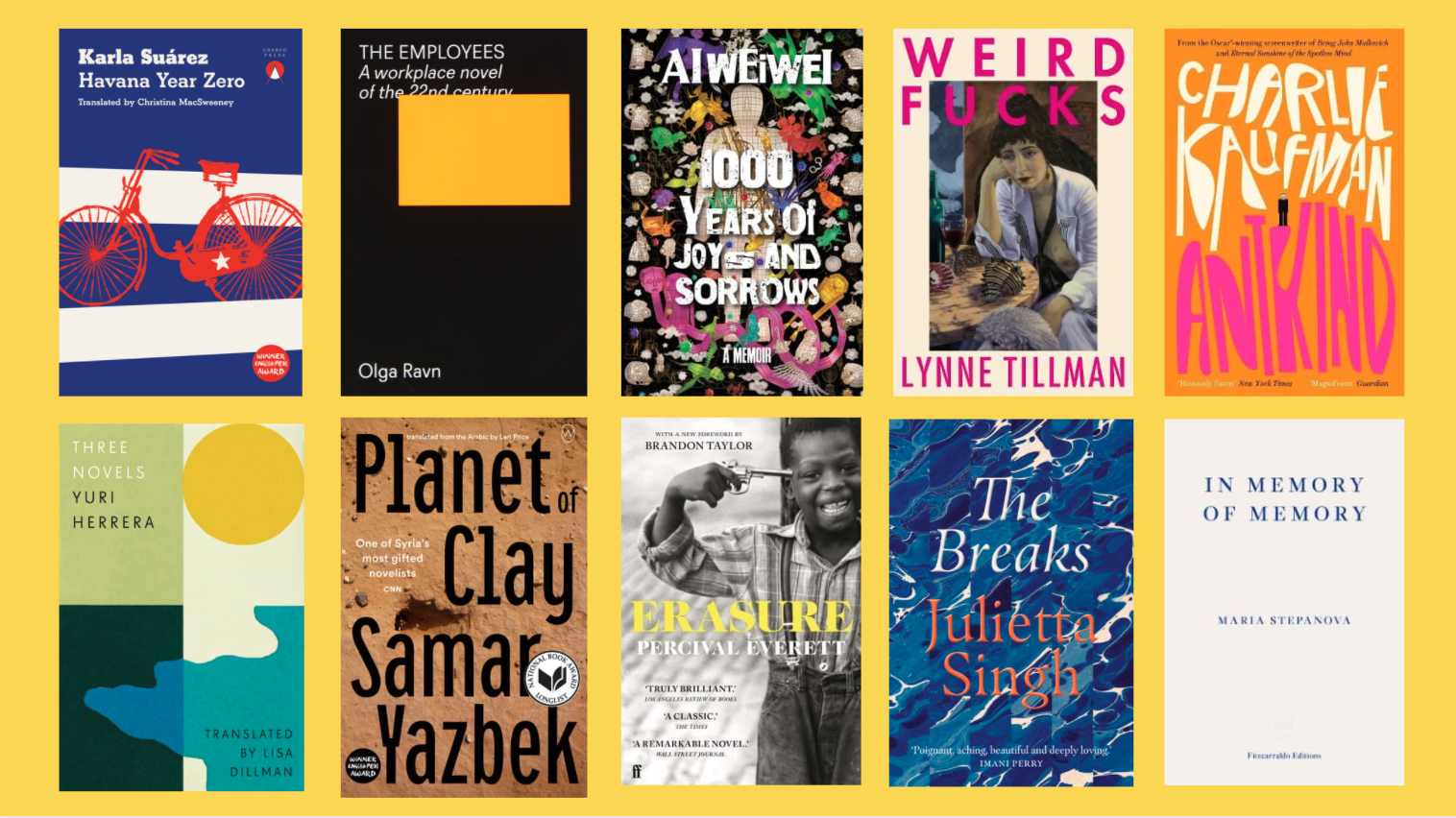Asking a bookseller for their top ten books of the year is deeply unfair. Such a request is liable to send any given bookseller on a hysterical search through time and publishing calendars. After creating and consulting a Charlie Kellyesque bulletin board, I present to you ten memorable books published or re-published in 2021, according to me, Callum Churchill.
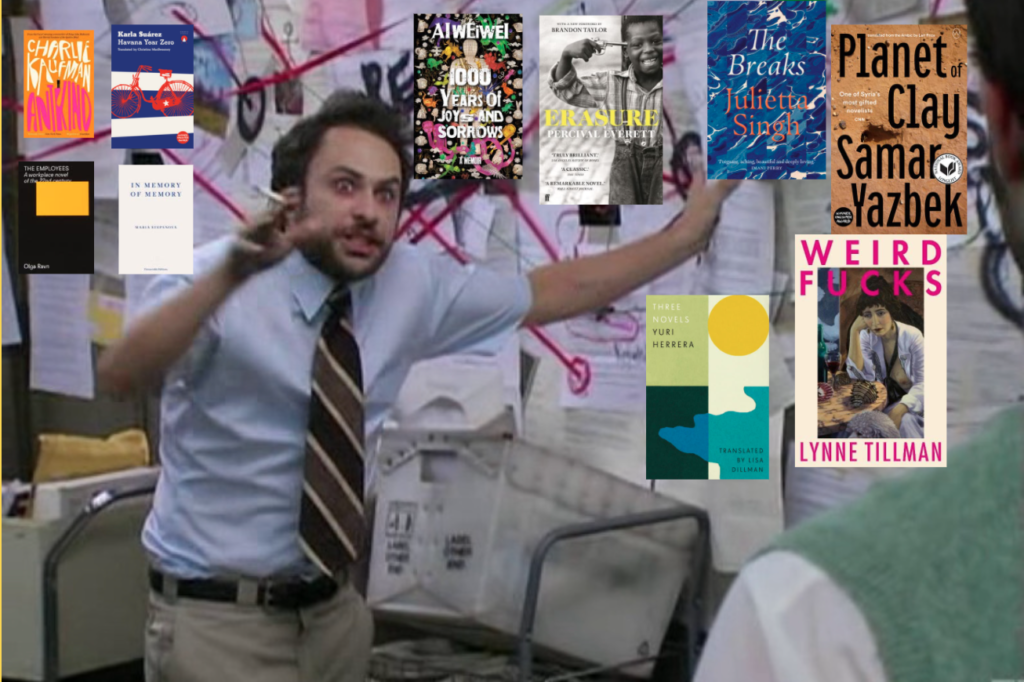
Havana Year Zero by Karla Suarez; translated by Christina Mac Sweeney
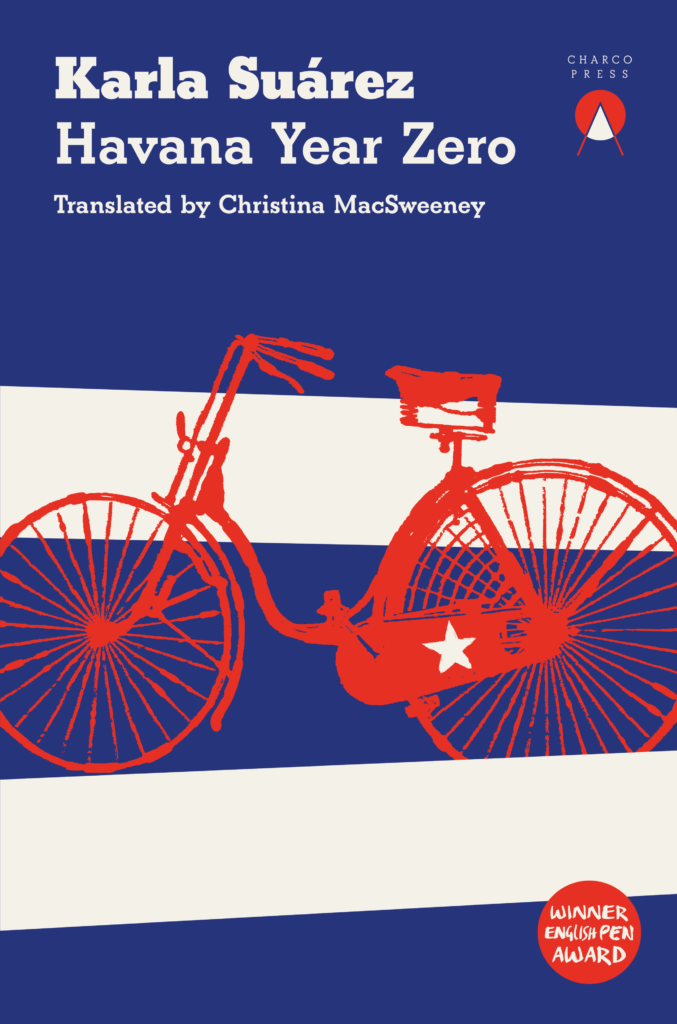
If this was a top ten list of the books I had read in the last ten years, ‘Havana Year Zero’ would still be on the list. The novel’s inspiration stems from the following intriguing piece of real world history: the inventor of the telephone was not in fact Graham Bell but, Antonio Meucci, a Florentine inventor, who resided in Havana during its invention. Set in the severely destabilized Havan of 1993 – caused by the collapse of the Soviet Bloc. A lively host of characters seek to subvert the widely accepted narrative of the phone’s origins by procuring an old patent that is said to exist somewhere in Havana. The highly elusive nature of the document permits it to often exist abstractly, and as each character pursues it, amongst the volatile political and economic landscape, the purpose of their individual pursuits become blurred, uncertain, and emulsive. ‘Havana Year Zero’, is one of those few precious books that humbly offers up sentences that you take forward into the world, sharp bifurcating sentences, dissecting sentences, that swiftly bring sense to confusion, order to chaos.
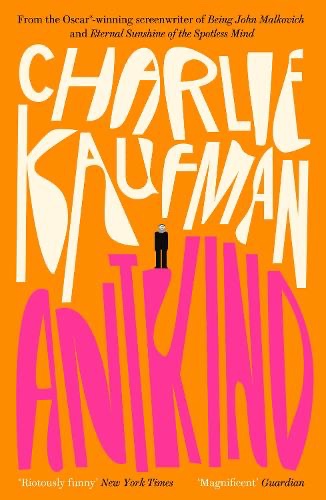
A Total Indulgence. Any criticism levelled against this book is totally called for, and I won’t bother objecting. Owing to its size (720p), Kaufman’s skin pigmentation, and the sheer wankiness of the thing, many have compared it to ‘Infamous Pest’, sorry ‘Infinite Jest’. I honestly don’t see it. If you love Kaufman, you will love this book. If you just eh-like-Kaufman-a-bit-kind-of, you might not; if you hate Kaufman you will loathe this book, fair. In the absence of a Hollywood budget – and without having to channel his vision through Jim Carrey – Kaufman is left alone with pen, paper, and reader. Kaufman untethered is very rewarding (if you are a fan). Peppered with jokes, ‘Antkind’, is a fantastic comic novel which has more in common with ‘A Confederacy of Dunces’ than anything else. The novel follows B. Rosenberger Rosenberg, a neurotic film critic in pursuit of what he considers to be the greatest movie ever made. B is one of two people who ever saw the movie, the other being its creator a recently deceased outsider artist. Whilst transporting the movie it spontaneously combusts. Bereft, B seeks hypnosis in order to reconstruct the movie; the movie is 15 hours long..
The Employees by Olga Ravn; translated by Martin Aitken
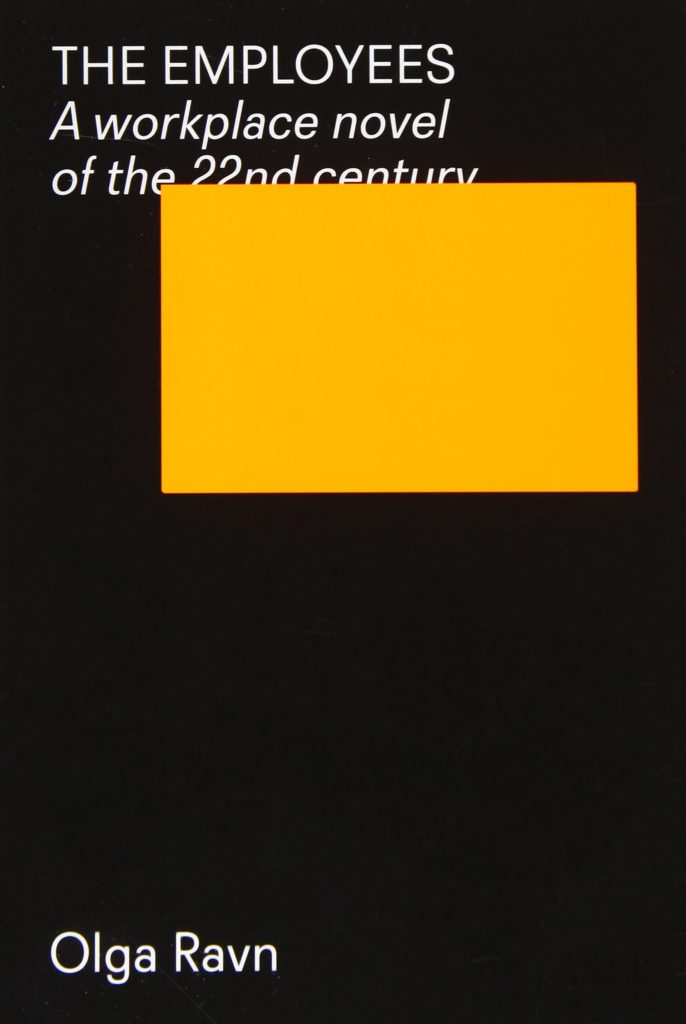
My colleagues are sick to death of hearing me recommend this book so I will keep this brief. Besides, if you have bumped into me in the shop I have probably already tried to sell you this book at least two or three times. The Employees by Olga Ravn is a novel told through a series of statements given by humans and humanoids living on a vessel that drifts through space collecting objects. As the statements progress, Humanoids begin to define themselves against these objects, grasping towards something like consciousness. All the while the humans begin to pine for their old world, becoming increasingly nostalgic. Behind these statements power shifts insidiously. The Employees is a quiet terror of a novel, which tempts the reader into uncomfortable reflections on consciousness, and leaves you questioning the realm of humanness. A small bang in a vacuum. Ann Carson meets Ursula LeGuin.
1000 Years of Joys and Sorrows by Ai Weiwei; translated by Allan Hepburn Barr
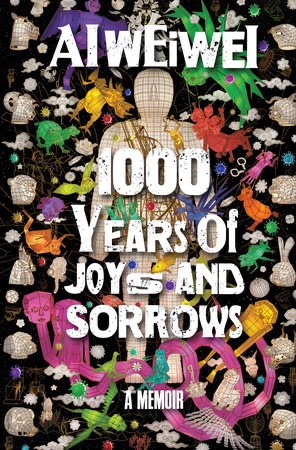
Ai Weiwei: artist, activist, documentarian, political dissident, author. An attempt to pigeon-hole Ai Weiwei is fatuous. However, you may wish to understand him a little, and this book would be your best chance. Whether you are familiar or unfamiliar with the artist – in fact even if you don’t particularly like his work – this book is still well worth reading. It is as much a political history of the last 150 years in China as it is a memoir. Documenting his father’s life as well as his own. The first half of the book chronicles Ai Quinq, Ai Weiwei’s father and revolutionary poet, who experienced Mao’s tyrannical reign from within and outside of Mao’s favour. Ai Weiwei brings to light the regime’s utterly destabilizing absurdity, the bureaucratic and mundane nature of evil, and the tragic effectiveness of state motivated hysteria. The second half is more focused on Ai Weiwei’s own life; his time spent in New York, his artistic influences, his activism, and thus his own dogged encounters with China’s state authority. Spanning two generations, ‘1000 Years of Joys and Sorrows’, collapses time and causes the reader to shudder at the realisation that everything is different, yet nothing has changed.
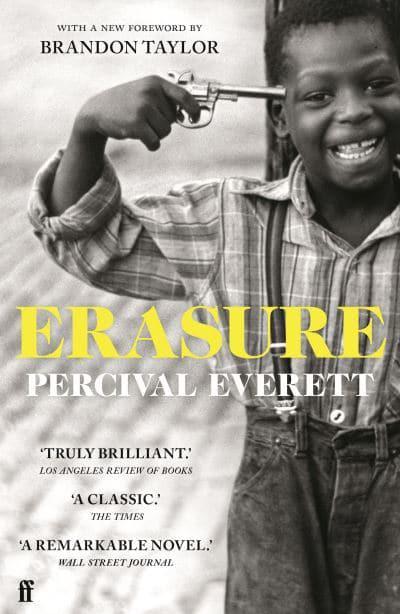
One highlight of my reading year has been discovering Percival Everett. Between them, Faber and Influx have blessed us with the republication of many of Everett’s novels – with more to come from Influx in 2022. ‘Erasure’ is a great place to start when entering the vivid, wickedly imaginative, and often extremely funny, Everettverse. ‘Erasure’ is a pacy cerebral page turner which follows Thelonius ‘Monk’ Ellison. Ellison is a smooth talking, sharp-witted, and overqualified black author whose books he is told by his agent are “too white”. A consistent theme across Everette’s work is his bashing of a culture industry which decides who can write what. Everette’s characters are constantly being pigeonholed into narrow expectations toward the pursuit of culturally palatable commercially successful work – that is, what a white audience expects. These bashings are often humorous and always innovative, and so it never feels tedious. As such the middle of ‘Erasure’ opens up into a novella called ‘My Pafology’, a novella mimicking the best selling ‘We’s Lives in Da Ghetto’ a novel told in “street” dialect, the movie rights for which have sold for $3 Million. As Thelonious attempts to situate himself in this literary landscape – which is dangerously close to consuming him, inducing a kind of apathy – his sister, a doctor running an abortion clinic, is shot dead by a pro-life terrorist. Thelonius is brought back to his Mother’s house, as the responsibilities of care and death admin ground him more thoroughly. With his signature suave intelligence and humour Everett satirises authorship, culture, and “authenticity”.
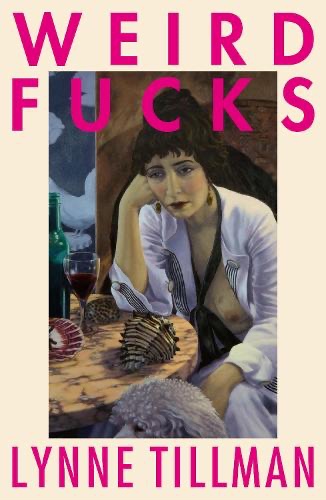
Lynne Tillman appeared on my radar last year after ‘Men and Apparitions’ was nominated for The Republic of Consciousness Prize. I like ‘Men and Apparitions’, it was thought provoking and sometimes funny. I felt the closing thesis ‘Men in Parenthesis’ was when the novel was at its strongest. However, I love ‘Weird Fucks’. Tillman’s candid prose often shocks the reader into laughter, or horror. A brief novella, the story documents a number of years in a young woman’s life, through a series of sexual encounters, unfortunately it’s needless to say that not all of them are positive. The novella reminded me of a short story by Carmen Maria Machardo, in which the protagonist documents the unfolding of the apocalypse through a series of sexual encounters. Although Tillman’s protagonist traverses continents, the men she encounters in each are grimly predictable; we have all met, or been, a few of these guys. ‘Weird Fucks’ is a refreshingly shameless demystification of the shag. Although it is short it is very very satisfying.
Planet of Clay by Samar Yazbek; translated by Leri Price
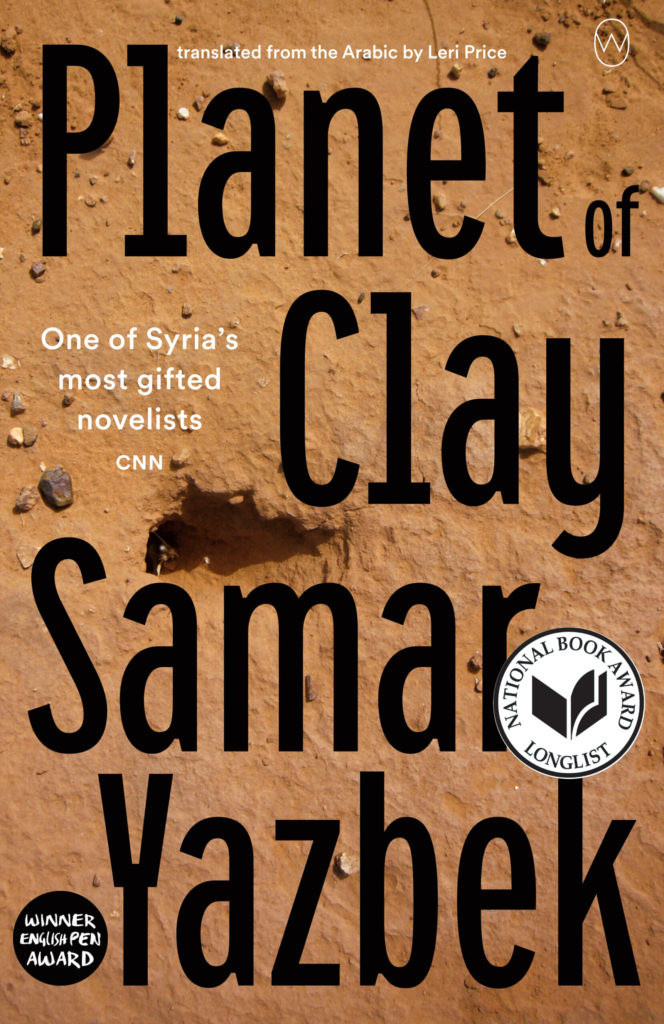
World Editions continue to astound me with the consistent quality, and the variety of their catalogue. ‘Planet of Clay’ is a recalibrating, forceful, and devastating reading experience. It is a stream of consciousness novel told from the perspective of Rima, a young neuro-divergent woman who is swept up in the siege of Ghouta. When people imagine a humanitarian crisis they often do so in a very limited capacity, discounting the vast range of experiences of those encountering the crisis. This novel deftly shatters assumptions by bringing us into the interior world of Rima as the siege unfolds. Rima is somewhat shielded from the immense trauma and chaos which surrounds her as she interprets the world through her beloved books. Translated from the Arabic by Levi Price, Samar Yazbek is a remarkable writer, and individual who deserves to be read. This book inspires silence and reflection, and so there is really not much more to say.
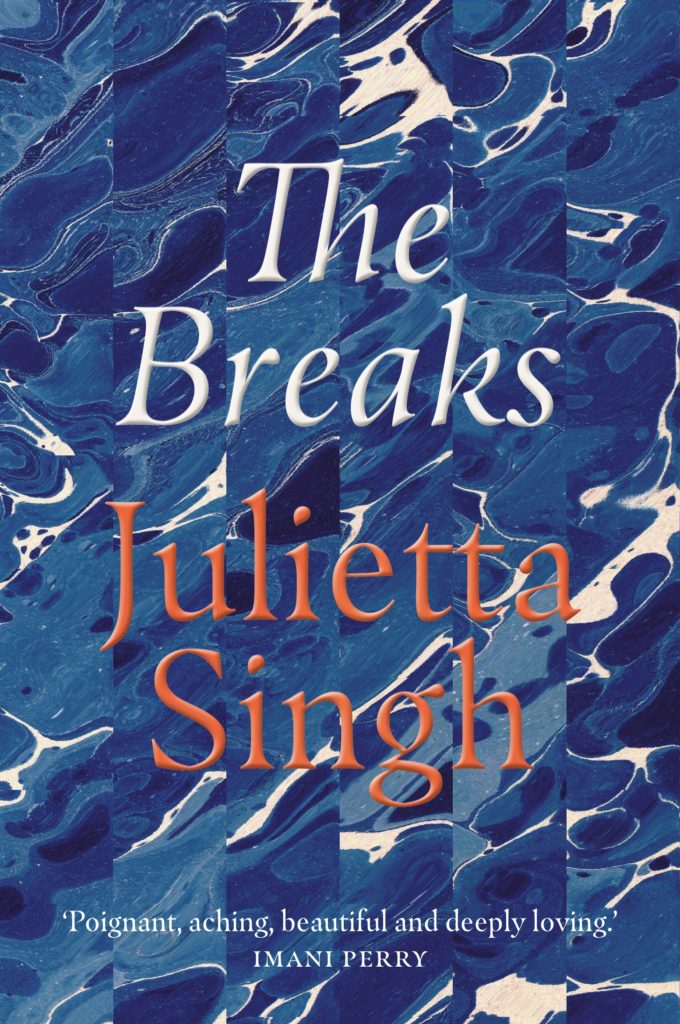
Comparable to James Baldwin’s ‘A Fire Next Time’, ‘The Breaks’ is Julietta Singh’s letter to her brown six-year-old daughter. Like Baldwin, Singh imparts the wisdom, stories, and family history that she has collected over her lifetime; preparing her daughter to enter a world uneasy with Brownness. Aware that it is not only enough to illuminate issues, Singh begins the visionary work of imagining alternative futures by providing alternative approaches to how we live today. For Singh, a large part of this is disturbing the assumptions of architecture. Drawing form her own Queer relationship, Singh observes how her A-sexual living arrangement breaks the hetro nuclear assumptions of a house’s utility. In doing so, Singh observes the potential this new living space has to invigorate community. ‘The Breaks’ is a much needed, convincing and optimistic proposal, that other worlds are indeed possible.
In Memory of Memory by Maria Stepanova; translated by Sasha Dugdale
Maria Stepanova is an author I am very excited about, and thanks to Bloodaxe I was also able to read her immensely vivid and ecstatic poetry, ‘War of the Beasts and The Animals’. I mean..
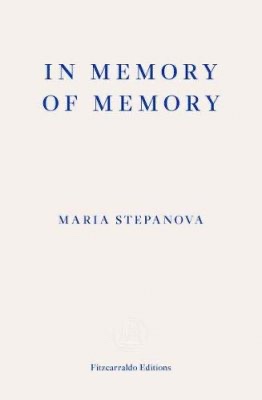
“As if we weren’t sawdust-stuffed, soap slivers,
Splinters of worlds thrown into a pail
And thick-lipped beer bottles
Trumpeted our way”
.. come on. We need a Nobel Prize for translation to sufficiently award efforts such as these. However, this review is for ‘In Memory of Memory’, also translated by Sasha Dugdale. It was Annie Ernaux that got me hooked on Fitzcarraldo Editions, and I am hopeful that Maria Stepanova, a writer who is also thoroughly done with convention, will come to occupy a similar place in Fitzcarraldo’s Publishing schedule. Stepanova writes outrageously and stunningly, not afraid of seemingly out-of-place scintillating metaphor, and not hostage to genre, or memory. ‘In Memory of Memory’ is an interrogation of memory. An interrogation which is not easy and often perturbing for the author, as memories she was so sure of, which constituted Maria’s identity, flagorate. This act, and the stock itself which we put into memories, familial narratives, and grand historical narratives, are further interrogated by Stepanova. The book observes how it is through Memory we construct the everyday, but memory is fallible, open to interpretation, is malleable and therefore often fought over. Alert to this, Stepanova cautiously delves into her family archive to understand how a Russian Jewish family, miraculously avoided persecution during a turbulent century.
Three Novels by Yuri Herrera ; translated by Lisa Dillman
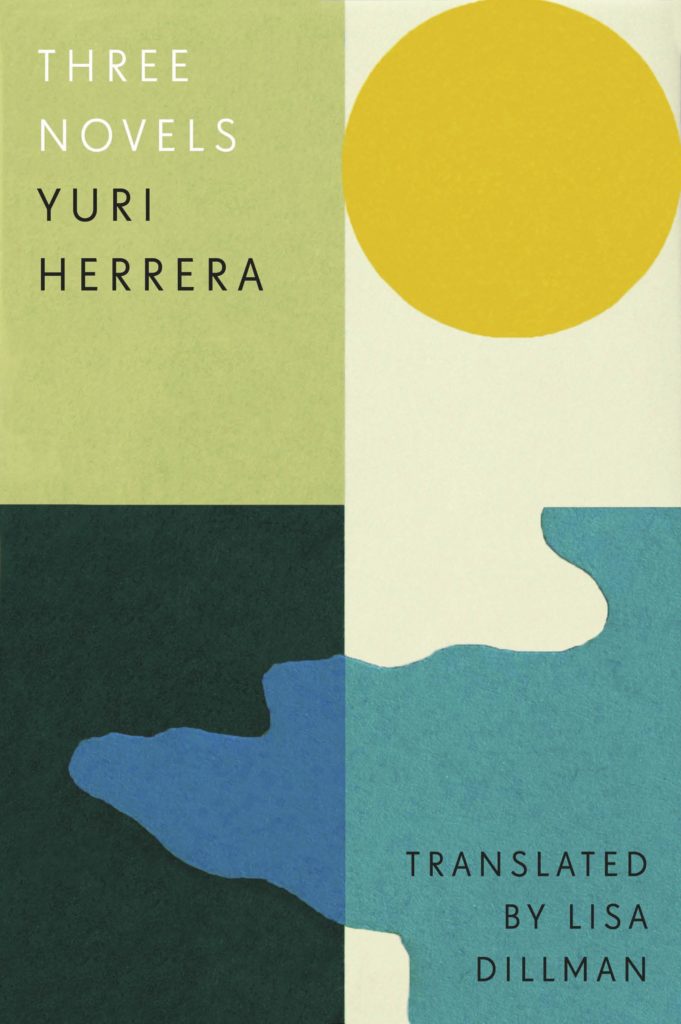
Admittedly this one is a bit of a cheat. It’s three novellas, previously published by & Other Stories. However, reading Herrera’s Border Trilogy back to back in one volume is a uniquely different experience to reading each novella separately with publishing intervals. Returning to these stories, I was reminded of Herrera’s innate storytelling ability, the clinical precision with which each story is pitched, his masterful economy, and exquisite balance of realism and surrealism. The Border Trilogy, presented here as ‘Three Novels’ is made up of the following novellas: ‘Kingdom Cons’; ‘Signs Preceding The End of The World’; and ‘The Transmigration of Bodies’. Each novella is vastly different; from cartel Romeo and Juliet, to gritty post-apocalyptic realism, to the spectral journey of a young girl seeking to cross boundaries. The novellas are bound by their proximity to borders; whether they be class, language, or political borders. Herrera illuminates the rich variety of experiences which exist near these borders, pushing further to draw a nuanced and restorative approach to the understanding of borders.
